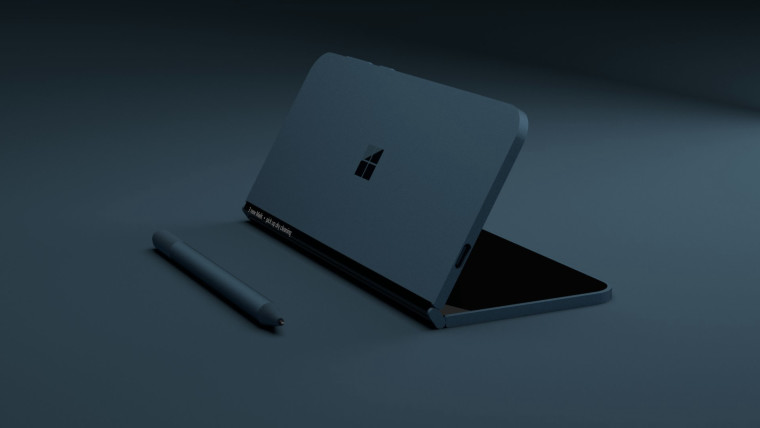
Back in 2014-ish, I was doing some work for a company in Manhattan, and the owner of the firm asked for my advice in purchasing a laptop. Like many people do when purchasing a computer, he believed that all he would ever need to do on it was check his email and Facebook. He also believed that PCs had become commoditized, and that if he bought the cheapest one he could find, he'd be OK.
When he asked for suggestions, I recommended some devices that were great at the time, such as the Acer Aspire S7 and the Surface Pro 3. I'll never forget his response when I told him how much they cost. He said, "If I'm going to spend that much, why wouldn't I just buy a Mac?"
You see, four years ago, it didn't even compute for him that premium PCs are worthwhile. To him, Macs were premium, and Windows PCs were made for cheap PCs that cost only a few hundred dollars. Naturally, he ended up buying the cheapest PC he could find, and then complained to me about it within days.
The market has changed
Since then, times have changed quite a bit. If you're sitting in a Starbucks or somewhere else, you're just as likely to see a premium Windows 10 PC as you would a Mac. Much of the revival of the Windows hardware industry is due to Microsoft's Surface hardware.
Introducing new form factors, Surface made the PC market more exciting than it had been in years. The Surface Pro was the tablet that could replace your laptop, and Surface Book was a sort of laptop that could replace your tablet.
The point is that it was exciting because new things were happening. For the first time, mainstream Windows 10 devices were being released with touchscreens, active pens, 360-degree hinges, and in a variety of form factors.
Enter: Andromeda
The last new Surface device that we got wasn't a new form factor at all. Surface Laptop was, as its name suggests, a laptop. So for almost a year now, fans have had their eye on Andromeda, which is often referred to as the Surface phone.

It's a dual-screen, foldable device that can fit in your pocket. It does have telephony, so technically it is a phone, but it's also a full PC with pen support and more. The ARM-powered device would likely include Qualcomm's upcoming Snapdragon 850 chipset. Of course, all of this is based on leaks and rumors.
It would have been the first new form factor on a Surface since the Surface Studio was introduced in late 2016. However, the device was reportedly delayed, if not completely canceled. Microsoft has gone back to the drawing board with it, so anything could happen at this point. It might end up being a dual-screen laptop type of PC, or something else.
With the Surface Laptop being the last new Surface line that's been introduced, and the next one being a $399 tablet, the innovation of new form factors seems stagnant when you take Andromeda out of the equation.
Yes, Andromeda might not make sense
I was one of the ones that really wanted a Surface Mini, the ARM-powered mini tablet that was canceled at the last minute before the Surface Pro 3 launch. I prefer to take handwritten notes sometimes, so this device was appealing to me.
In fact, I'd love a device with a pen that can fit in my pocket. In fact, I'd buy a Samsung Galaxy Note type of device in a heartbeat if it was built around OneNote instead of S Note.
But obviously, not everyone is like me. So does Andromeda make sense? Maybe, and maybe not. That's the thing about form factors that are a radical departure from what we're used to. No one can really know if they'll be successful.
Microsoft's Surface Pro is easily the most successful Surface product that there is, but it wasn't always that way. Announced alongside of the failed Surface RT, the first Surface Pro was too small to function as a laptop and too heavy and bulky to properly function as a tablet. The Intel third-generation processor left it with about three hours of battery life.

One thing that it had going for it was that it served a purpose. It was an era where people were deciding between getting a new laptop or one of those new iPads (remember, people like to convince themselves that they only need to check their email and Facebook). With a Windows-powered tablet, that choice didn't have to be made anymore. You could have both in one.
And after a couple of iterations, the Surface Pro 3 was born and there was suddenly a tablet that was a viable laptop replacement.
Remember though, Microsoft had Continuum with Windows 10 Mobile, even trying to brand various Windows phones as 3-in-1 PCs like the HP Elite x3. This provided a desktop experience by plugging the phone into a monitor, keyboard, and mouse. This idea of an ultraportable PC experience never took off, and it hasn't taken off for competitors that have tried it either, like Samsung and Huawei.

I would never expect Andromeda to be successful on day one, but like anything, it could be iterated into a successful product over time. If done properly, it could eventually be a true all-in-one PC, being a phone that folds open into a tablet, and then can be plugged into a monitor for a laptop/desktop experience.
Microsoft needs to take risks
What it all comes down to for me is that Microsoft needs to take chances, and be willing to fail at times. For example, Surface RT was a disastrous failure, causing the company to have to write down nearly a billion dollars. But if it wasn't for Microsoft's big bet on ARM with Windows RT, perhaps Surface Pro wouldn't have been born.
Let's take a look at Amazon. Do you remember the Fire Phone? Released in 2014, it was another disastrous failure. But instead of getting out of hardware, CEO Jeff Bezos famously said in 2016 that Amazon is "working on much bigger failures". Of course, Bezos didn't mean that the company is building products that are planned to fail. What he meant is that you can't disrupt the market unless you're willing to take risks and ultimately fail on some of them.

When Amazon first introduced the Echo with its Alexa virtual assistant, that product didn't make sense either. At best, it was a novelty to have this thing in your living room that you could ask questions, to which it would only occasionally know the answer. But Amazon hasn't given up on Alexa, and with smart home devices becoming more and more popular, it's proving its use.
And in fact, the smart speaker market is arguably the next big thing. After tablets, people were wondering what the next booming segment of the technology market would be. Many thought it would be smartwatches, and later virtual reality. But as it turned out, smart speakers ended up being this booming segment of the industry, and Microsoft missed it...again. Harman Kardon released a smart speaker with Cortana, but Microsoft has put far too little effort into Cortana for that to work.

Remember, Windows 10 PCs are the only part of the tablet market that's not in decline, and convertibles are one of few segments of the PC market that's actually growing. That's all because Microsoft took a chance on Surface RT and Surface Pro. One of them failed, and the other became quite successful.
And if Andromeda is released and it fails, that's ok. Microsoft could get it on generation two or three, or it can learn a lesson from it and put it all into another new class of devices that might do better.
Determined to miss the boat
Following Microsoft is a long tale of watching the company miss the next big thing. Windows Phone is probably the biggest example, failing to provide a touchscreen OS until 2010, and then rebooting the project several times before just giving up.
Another example, as noted earlier, is smart speakers. When Cortana launched with Windows Phone 8.1 in 2014, it was well ahead of its competitors. Gradually, it fell behind. After all, Amazon adds new features to Alexa almost every week, while Microsoft is tying Cortana features to semi-annual Windows 10 releases.
And while the general public might not be sold on virtual and augmented reality, Microsoft isn't doing much in that space either. Back in late 2016, the company made a big deal of VR headsets that work with Windows 10 and cost $299, which offered a much lower barrier of entry than competitors. Almost two years later, nothing has changed on that front, while its competitors are launching cheaper products, along with standalone headsets that don't have any bulky wires.

Don't forget about HoloLens, an area where Microsoft will fall behind if it doesn't do something soon. Apple and Google have launched smartphone-based solutions in ARKit and ARCore, respectively, and Microsoft is still the only one with a standalone AR headset. That will change though, and don't be surprised if Apple launches one and says that all ARKit apps will "just work".
Microsoft talks about innovating and exploring new device types and form factors a lot. It clearly doesn't want to miss out on the next big thing, in the same way that it missed out on phones and it's now missing out on smart speakers.

But the only way to do that is to actually experiment with new things. It's also important to iterate on these things until they actually work, taking feedback from customers and implementing it into a better product. Few new products are an immediate success, but they can be with some work.
Andromeda is one of these things. It's an exciting product, whether it's successful or not.







_small.jpg)











53 Comments - Add comment